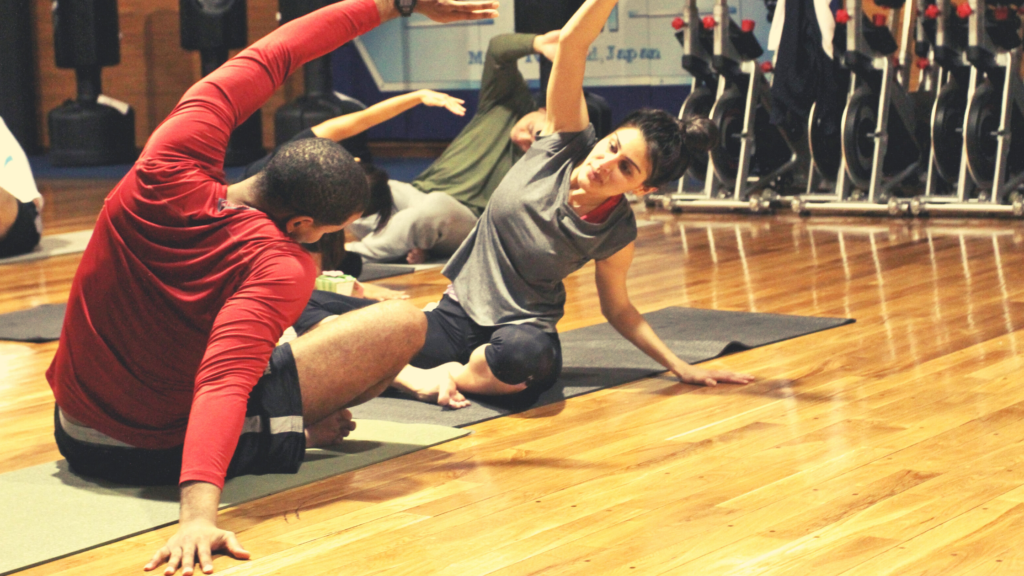Do you feel like you’re constantly under pressure? Do you feel like stress is taking a toll on your mental and physical health? If so, you’re not alone. Stress can be one of the leading causes of illness. But did you know that there are things you can do to reduce the amount of stress in your life? This helpful guide will discuss 9 mental exercises with a practice that can help reduce stress levels and improve your overall well-being.
1. Meditation
One of the best ways to reduce stress is through meditation. Meditation can help you learn how to focus and clear your mind. It can also help you become more aware of your thoughts and feelings. It can also assist you in becoming more conscious of your thoughts and emotions. There are many ways to meditate, so find a method that works best for you.
If you’re new to meditation, plenty of resources are available to help you get started. Once you’ve learned how to meditate, make it a habit to meditate for at least 20 minutes each day.
2. Visualization
Visualization is another effective stress-reduction technique. It involves picturing yourself in a relaxing setting or situation. For example, you might imagine yourself lying on a beach, surrounded by warm sun and gentle waves. Or you might picture yourself taking a peaceful walk through a meadow full of wildflowers.
Spend a few minutes each day practicing visualization. Close your eyes and focus on the image you’ve chosen. Try to imagine it as vividly as possible. Pay attention to the colours, sounds, and smells around you.
3. Progressive Muscle Relaxation
Progressive muscle relaxation is a stress-reduction technique that involves tensing and relaxing different muscle groups in your body. Start by tensing the muscles in your toes for a few seconds. Then relax them. Progress up to your calves, thighs, abdomen, chest, arms, neck, and face.
Tense each muscle group for about five seconds before relaxing it. As you tense and relax your muscles, focus on your breathing. Inhale deeply and exhale slowly.
Progressive muscle relaxation can help reduce muscular tension and stress. It’s good to practice this technique for at least 20 minutes each day.
4. Practice deep breathing
One of the best ways to reduce stress is by practicing deep breathing. When you’re feeling overwhelmed or stressed, take a few minutes to focus on your breath. Inhale deeply and exhale slowly. This can help to calm your mind and body.
If you’re having trouble finding healthy ways to cope with stress, speak with a trained therapist who can assist you in developing a plan.
5. Take a walk outdoors
Another great way to reduce stress is by getting some fresh air. When you’re feeling stressed, take a few minutes to step outside and take a walk. Breathe in the fresh air and take in your surroundings. This can help clear your mind and give you some time to relax.
6. Listen to calming music
Listening to calm, relaxing music can also help to reduce stress. There are many different genres of music that can be helpful for relaxation. Find a type of music you enjoy and put it on when you’re feeling stressed. This can help to calm your mind and body.
7. Seek Support from Others
Sometimes, the best way to deal with stress is to talk to someone about it. Whether you confide in a friend, family member, or therapist, talking about your stress can help you feel better and find new ways to cope. So, don’t be afraid to reach out for support when you’re feeling stressed.
8. Practice Mindfulness
Mindfulness is all about being present at the moment and not letting your thoughts wander. This can be a difficult task, but there are many ways to practice mindfulness. One method is to concentrate on your breathing
and count each inhalation and exhalation. You can also try eating mindfully, which means paying attention to your food’s taste, texture, and smell.
9. Avoid Unhealthy Coping Mechanisms
Finding healthy ways to cope with stress is critical. Some people turn to unhealthy coping mechanisms, such as drinking alcohol or smoking cigarettes. These might provide temporary relief from stress, but they will ultimately make things worse in the long run. If you’re struggling to find healthy ways to cope with stress, talk to a therapist or counsellor who can help you develop a plan.
You May Like This: Best Healthy Diet Plan For Men Who Want To Live A Healthier Lifestyle.
Conclusion:
These are just a few mental exercises that can help reduce stress. So, next time you’re feeling overwhelmed, try one of these exercises and see how it helps. Remember, reducing stress is all about finding what works for you. So, experiment with different techniques and find those that help you feel calm and relaxed.
FAQS – Frequently asked questions:
Q: What are some mental exercises that can help reduce stress?
A: Some mental exercises that can help reduce stress include deep breathing, visualization, and mindfulness meditation.
Q: How often should I do these exercises?
A: You should do these exercises as often as you feel necessary. However, even just a few minutes a day can make a big difference.
Q: Will these exercises work for everyone?
A: While mental exercises may not work for everyone, they are worth trying. If you find that they are helpful, stick with them. If not, there are many other stress-relief techniques out there that you can explore.
Q: I’m feeling stressed out. Where can I get more information about these exercises?
A: If you’re feeling overwhelmed by stress, please reach out to a mental health professional for more guidance. In the meantime, there are many resources available online and in libraries that can provide additional information about stress relief exercises.



